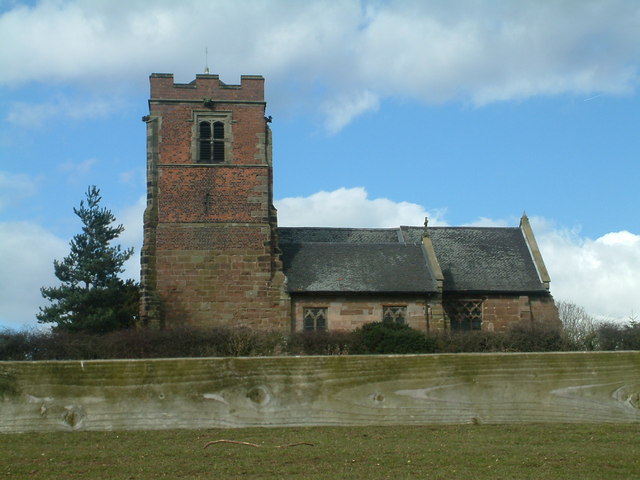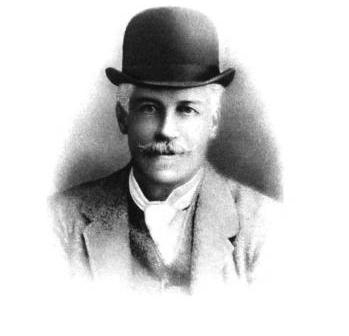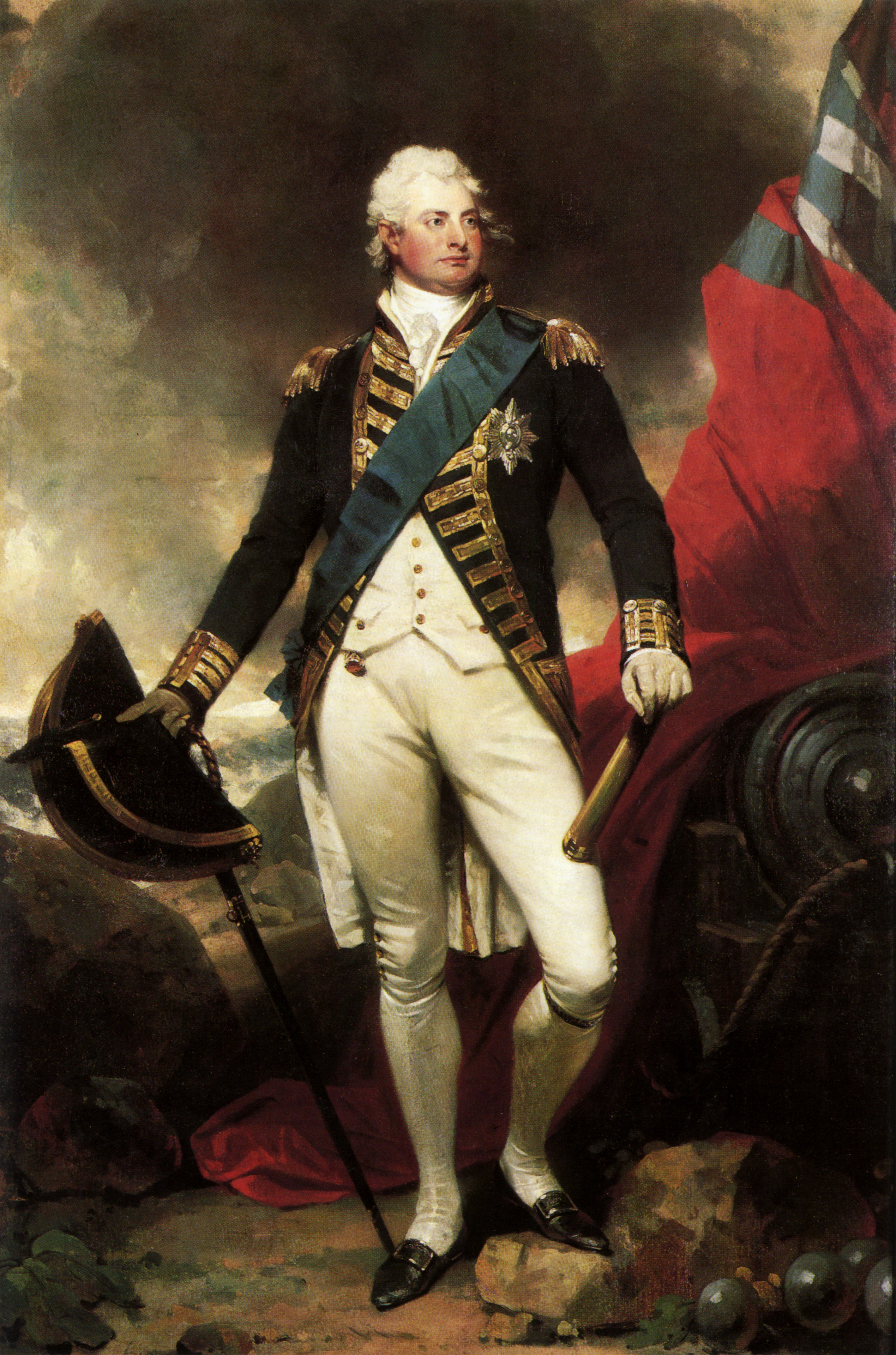|
Wychnor Park
Wychnor Hall (or Wychnor Park, ) is Grade II Listed early 18th-century country house near Burton on Trent, Staffordshire, formerly owned by the Levett Family. The hall has been converted to a Country Club. History Wychnor takes its name from the Old English meaning 'village on a bank.' Its earliest spelling was Hwiccenofre. Ofre was the Anglo-Saxon word for "edge or bank". Hwicce was a provence comprising Gloucestershire, Worcestershire and a part of Warwickshire and the people were called Hwiccas or Hwicii. It is thought that some of these people came to settle in Wychnor and so gave their name to the place they settled in. King James I reportedly stayed at the hall in 1621 and 1624. The present hall dates from the time of Queen Anne but was much altered and extended in the mid 19th century. There are a number of curious customs associated with Wychnor, at least one of which was said to have begun with Sir Philip de Somerville, who owned the manor of Wychnor in 1338. A flit ... [...More Info...] [...Related Items...] OR: [Wikipedia] [Google] [Baidu] |
Staffordshire
Staffordshire (; postal abbreviation Staffs.) is a landlocked county in the West Midlands region of England. It borders Cheshire to the northwest, Derbyshire and Leicestershire to the east, Warwickshire to the southeast, the West Midlands County and Worcestershire to the south and Shropshire to the west. The largest settlement in Staffordshire is Stoke-on-Trent, which is administered as an independent unitary authority, separately from the rest of the county. Lichfield is a cathedral city. Other major settlements include Stafford, Burton upon Trent, Cannock, Newcastle-under-Lyme, Rugeley, Leek, and Tamworth. Other towns include Stone, Cheadle, Uttoxeter, Hednesford, Brewood, Burntwood/Chasetown, Kidsgrove, Eccleshall, Biddulph and the large villages of Penkridge, Wombourne, Perton, Kinver, Codsall, Tutbury, Alrewas, Barton-under-Needwood, Shenstone, Featherstone, Essington, Stretton and Abbots Bromley. Cannock Chase AONB is within the county as well as parts of the ... [...More Info...] [...Related Items...] OR: [Wikipedia] [Google] [Baidu] |
Lunar Society
The Lunar Society of Birmingham was a British dinner club and informal learned society of prominent figures in the Midlands Enlightenment, including industrialists, natural philosophers and intellectuals, who met regularly between 1765 and 1813 in Birmingham. At first called the Lunar Circle, "Lunar Society" became the formal name by 1775. The name arose because the society would meet during the full moon, as the extra light made the journey home easier and safer in the absence of street lighting. The members cheerfully referred to themselves as ''"lunaticks"'', a pun on lunatics. Venues included Erasmus Darwin's home in Lichfield, Matthew Boulton's home, Soho House, Bowbridge House in Derbyshire, and Great Barr Hall. Membership and status The Lunar Society evolved through various degrees of organisation over a period of up to fifty years, but was only ever an informal group. No constitution, minutes, publications or membership lists survive from any period, and evidence of its ... [...More Info...] [...Related Items...] OR: [Wikipedia] [Google] [Baidu] |
Grade II Listed Buildings In Staffordshire
Grade most commonly refers to: * Grade (education), a measurement of a student's performance * Grade, the number of the year a student has reached in a given educational stage * Grade (slope), the steepness of a slope Grade or grading may also refer to: Music * Grade (music), a formally assessed level of profiency in a musical instrument * Grade (band), punk rock band * Grades (producer), British electronic dance music producer and DJ Science and technology Biology and medicine * Grading (tumors), a measure of the aggressiveness of a tumor in medicine * The Grading of Recommendations Assessment, Development and Evaluation (GRADE) approach * Evolutionary grade, a paraphyletic group of organisms Geology * Graded bedding, a description of the variation in grain size through a bed in a sedimentary rock * Metamorphic grade, an indicatation of the degree of metamorphism of rocks * Ore grade, a measure that describes the concentration of a valuable natural material in the surroundin ... [...More Info...] [...Related Items...] OR: [Wikipedia] [Google] [Baidu] |
Listed Buildings In Wychnor
Wychnor is a civil parish in the district of East Staffordshire, Staffordshire, England. It contains 15 buildings that are recorded in the National Heritage List for England The National Heritage List for England (NHLE) is England's official database of protected heritage assets. It includes details of all English listed buildings, scheduled monuments, register of historic parks and gardens, protected shipwrecks, a .... Of these, one is listed at Grade II*, the middle grade, and the others are at Grade II, the lowest grade. The parish contains the village of Wychnor and the surrounding countryside. The Trent and Mersey Canal passes through the parish and the listed buildings associated with it are two bridges and a milepost. The other listed buildings include a church, a country house and associated structures, farmhouses, and farm buildings. __NOTOC__ Key Buildings References Citations Sources * * * * * * * * * * * * * * * * * {{DEFAULTSORT:Wychn ... [...More Info...] [...Related Items...] OR: [Wikipedia] [Google] [Baidu] |
Theophilus John Levett
Colonel Theophilus John Levett (11 December 1829 – 27 February 1899) was a Conservative Party politician in the United Kingdom, who served as Member of Parliament (MP) for Lichfield from 1880 to 1885. Levett was the son of John Levett of Wychnor Park, Staffordshire and his wife Sophia Eliza Kennedy, the daughter of Hon. Robert Kennedy, third son of Archibald Kennedy, 11th Earl of Cassilis. Levett was a Captain in the 1st Life Guards and inherited Wychnor on the death of his father. Levett also owned Smallwood Manor at Uttoxeter. He was elected as the MP for Lichfield in at a by-election in July 1880, but when the parliamentary borough of Lichfield was abolished at the 1885 general election, he did not stand again.; Levett is not listed in the index of candidates He was a JP and DL for Staffordsire and served on Staffordshire County Council for Lichfield from 1889 until his death in 1899. Originally from Sussex, Levett's ancestors came to Staffordshire in the eighteenth c ... [...More Info...] [...Related Items...] OR: [Wikipedia] [Google] [Baidu] |
George III Of The United Kingdom
George III (George William Frederick; 4 June 173829 January 1820) was King of Great Britain and of Monarchy of Ireland, Ireland from 25 October 1760 until Acts of Union 1800, the union of the two kingdoms on 1 January 1801, after which he was King of the United Kingdom of Great Britain and Ireland until his death in 1820. He was the longest-lived and longest-reigning king in British history. He was concurrently Duke and Prince-elector of Electorate of Brunswick-Lüneburg, Brunswick-Lüneburg ("Hanover") in the Holy Roman Empire before becoming King of Hanover on 12 October 1814. He was a monarch of the House of Hanover but, unlike his two predecessors, he was born in Great Britain, spoke English as his first language and never visited Hanover. George's life and reign were marked by a series of military conflicts involving his kingdoms, much of the rest of Europe, and places farther afield in Africa, the Americas and Asia. Early in his reign, Great Britain defeated France in th ... [...More Info...] [...Related Items...] OR: [Wikipedia] [Google] [Baidu] |
William Dyott
General William Dyott (17 April 1761 – 7 May 1847) was a British Army officer and courtier who served in the eighteenth and nineteenth centuries. Having joined the 4th Regiment of Foot during the American Revolutionary War, he initially served in Ireland before moving to Nova Scotia where in 1788 he befriended Prince William Henry, the future William IV. Dyott undertook a series of staff appointments in England and Ireland until after the start of the French Revolutionary War when, promoted to lieutenant colonel, he took the 25th Regiment of Foot to the West Indies. In 1796 Dyott fought against Fédon's rebellion on Grenada, returning at the end of the year having lost the majority of his regiment to yellow fever. After several more staff appointments Dyott took the 25th to serve in the Egypt campaign in 1801, arriving too late to participate in most of the campaign but seeing action at the Siege of Alexandria. In the first years of the ensuing Napoleonic Wars Dyott wo ... [...More Info...] [...Related Items...] OR: [Wikipedia] [Google] [Baidu] |
General Officer
A general officer is an officer of high rank in the armies, and in some nations' air forces, space forces, and marines or naval infantry. In some usages the term "general officer" refers to a rank above colonel."general, adj. and n.". OED Online. March 2021. Oxford University Press. https://www.oed.com/view/Entry/77489?rskey=dCKrg4&result=1 (accessed May 11, 2021) The term ''general'' is used in two ways: as the generic title for all grades of general officer and as a specific rank. It originates in the 16th century, as a shortening of ''captain general'', which rank was taken from Middle French ''capitaine général''. The adjective ''general'' had been affixed to officer designations since the late medieval period to indicate relative superiority or an extended jurisdiction. Today, the title of ''general'' is known in some countries as a four-star rank. However, different countries use different systems of stars or other insignia for senior ranks. It has a NATO rank sc ... [...More Info...] [...Related Items...] OR: [Wikipedia] [Google] [Baidu] |
High Sheriff Of Staffordshire
This is a list of the sheriffs and high sheriffs of Staffordshire. The sheriff is the oldest secular office under the Crown. The sheriff was the principal law enforcement officer in the county but over the centuries most of the responsibilities associated with the post have been transferred elsewhere or are now defunct so that its functions are now largely ceremonial. From 1204 to 1344 the High Sheriff of Staffordshire also served as Sheriff of Shropshire. Under the provisions of the Local Government Act 1972, on 1 April 1974 the office previously known as sheriff was retitled high sheriff. The high sheriff changes every March. Sheriffs 11th century * 1086: Robert de Stafford . * 1094: Nicholas de Stafford 12th century 13th century 14th century 15th century 16th century 17th century 18th century 19th century 20th century High sheriffs 20th century 21st century References * ''London Gazette'' * * ''History of Staffordshire'' from British History Onl ... [...More Info...] [...Related Items...] OR: [Wikipedia] [Google] [Baidu] |
Sampson Erdeswicke
Sampson Erdeswicke (born c. 1535x1540; died 1603) was an English antiquary and chorographer. Background Sampson's father, Hugh Erdeswicke claimed descent from Richard de Vernon, Baron of Shipbrook in the reign of William the Conqueror. The family resided originally at Erdeswicke Hall, Minshull Vernon, in Cheshire, afterwards at Leighton and finally in the reign of Edward III settled at Sandon in Staffordshire, at Sandon Hall (in its medieval form). Hugh Erdeswicke was a staunch Catholic; in 1582 he was reported to the Privy Council by the Bishop of Coventry as "the sorest and dangerousest papist, one of them in all England". He is said to have struck a justice of the peace on the pate with a crabtree staff openly in Sandon churchyard, possibly the same person whom he found upon some occasion ransacking his house. Life Sampson was born at Sandon, and entered Brasenose College, Oxford as a gentleman-commoner in 1553. Leaving Oxford, he returned to his life as a country gentleman ... [...More Info...] [...Related Items...] OR: [Wikipedia] [Google] [Baidu] |



.jpg)
